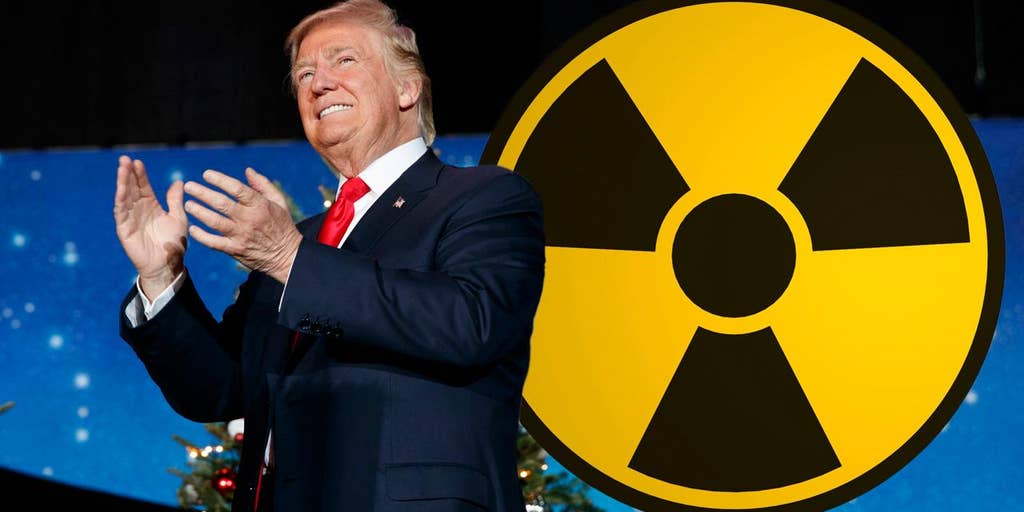Will Trump's Team Fast-Track Nuclear Power Plant Projects?

Table of Contents
The possibility of a Trump administration fast-tracking nuclear power plant projects has ignited considerable debate within the energy sector and beyond. This article examines the potential for accelerated approvals under such an administration, the significant regulatory hurdles involved, and the broader implications for the energy sector and environmental concerns. We will delve into the specific policies and their potential impact on the timeline for new nuclear power plant construction, considering both the economic benefits and potential drawbacks.
Trump Administration's Stance on Nuclear Energy
The Trump administration, particularly during its early years, expressed strong support for nuclear energy as a component of a diversified energy portfolio. This support stemmed from a focus on energy independence, reducing reliance on foreign energy sources, and promoting what was seen as a reliable and "clean" energy source. Key figures within the administration, while not explicitly advocating for fast-tracking, often emphasized the need to streamline regulations to facilitate energy sector growth.
- Support for nuclear energy: Statements from President Trump and members of his administration consistently highlighted the role of nuclear power in ensuring a stable and secure energy supply for the United States.
- Deregulation and streamlined approvals: The administration's overall approach towards deregulation suggested a potential willingness to expedite the approval process for nuclear power plants, reducing bureaucratic red tape.
- Energy independence focus: The emphasis on American energy independence naturally aligned with promoting domestic nuclear power generation, reducing reliance on foreign uranium and reducing the impact of volatile global energy markets.
Regulatory Hurdles and Potential Streamlining
The construction of nuclear power plants in the US is subject to a rigorous regulatory framework, primarily overseen by the Nuclear Regulatory Commission (NRC). The NRC's process involves extensive environmental impact statements, safety reviews, and licensing procedures, which can significantly extend the timeline for project completion. A Trump administration might have explored avenues to streamline these processes.
- Reduced environmental reviews: Potential changes could have included simplifying or accelerating environmental impact statement reviews, potentially leading to quicker approvals.
- Accelerated licensing: Streamlining the licensing and permitting procedures through regulatory changes or executive orders could have shortened the approval timeline considerably.
- Legislative changes: While unlikely without bipartisan support, legislative changes could have been pursued to expedite approvals, potentially bypassing certain regulatory hurdles.
- Challenges and legal battles: However, any attempt to significantly accelerate the approval process would likely face opposition from environmental groups and potentially result in protracted legal battles challenging the validity of streamlined procedures.
Economic Implications of Fast-Tracking Nuclear Projects
Fast-tracking nuclear power plant projects could have significant economic benefits, particularly in terms of job creation and stimulating domestic investment. However, it's crucial to also consider potential risks and costs.
- Job creation: Accelerated construction would boost employment in manufacturing, construction, and the operation of nuclear plants themselves, creating thousands of jobs across various skill levels.
- Economic stimulus: Increased investment in the nuclear energy sector would stimulate the domestic economy, potentially benefiting related industries and supporting economic growth.
- Cost overruns and delays: Paradoxically, while intended to speed up construction, attempts to fast-track projects could inadvertently increase the risk of cost overruns and delays if safety and quality standards are compromised.
- Electricity prices: The effect on electricity prices is complex and could vary depending on the scale of the projects and the efficiency of the construction process. Faster project completion could eventually lead to lower prices in the long run, but initial investment costs could temporarily impact prices.
Environmental Considerations and Public Perception
Nuclear power presents a complex environmental profile. While it generates electricity with minimal greenhouse gas emissions during operation, concerns remain regarding nuclear waste disposal and the potential for accidents. Public perception of nuclear energy is also a significant factor.
- Nuclear waste disposal: The safe and long-term storage of nuclear waste remains a significant challenge, necessitating ongoing research and development of effective disposal solutions.
- Safety and risk mitigation: Robust safety regulations and stringent risk mitigation strategies are crucial to minimizing the potential for accidents and ensuring public safety.
- Public opinion: Public acceptance of nuclear power is varied, influenced by factors such as past accidents, concerns about waste disposal, and the perception of risk.
- Comparison with other sources: The environmental impact of nuclear power needs to be considered in comparison to other energy sources, such as fossil fuels and renewable energy, weighing the various environmental benefits and drawbacks.
Conclusion
The question of whether a Trump administration would have successfully fast-tracked nuclear power plant projects remains complex. While there was a stated preference for nuclear energy and a broader push for deregulation, navigating the intricate regulatory landscape and addressing legitimate environmental and safety concerns would have proven challenging. The potential economic benefits of faster construction are undeniable, but so are the potential risks and costs associated with accelerating the process, including the potential for compromising safety and public trust. Further research and ongoing monitoring of the regulatory environment are crucial to fully understand the implications of any policy shifts affecting nuclear power plant development in the US. Stay informed about developments in nuclear energy policy to better understand the future of nuclear power plant development.

Featured Posts
-
 Chantal Ladesou Les Vraies Raisons De Son Absence Du Jeu Qui Rit Sort
May 11, 2025
Chantal Ladesou Les Vraies Raisons De Son Absence Du Jeu Qui Rit Sort
May 11, 2025 -
 New Hairstyle Alert Rochelle Humes At London Fashion Week
May 11, 2025
New Hairstyle Alert Rochelle Humes At London Fashion Week
May 11, 2025 -
 Crazy Rich Asians Tv Show Everything We Know So Far
May 11, 2025
Crazy Rich Asians Tv Show Everything We Know So Far
May 11, 2025 -
 L Arrivee De Hanouna Sur M6 Le Point De Vue D Un Animateur Veteran
May 11, 2025
L Arrivee De Hanouna Sur M6 Le Point De Vue D Un Animateur Veteran
May 11, 2025 -
 Transferrykten Thomas Mueller Pa Vaeg Bort Fran Bayern
May 11, 2025
Transferrykten Thomas Mueller Pa Vaeg Bort Fran Bayern
May 11, 2025
